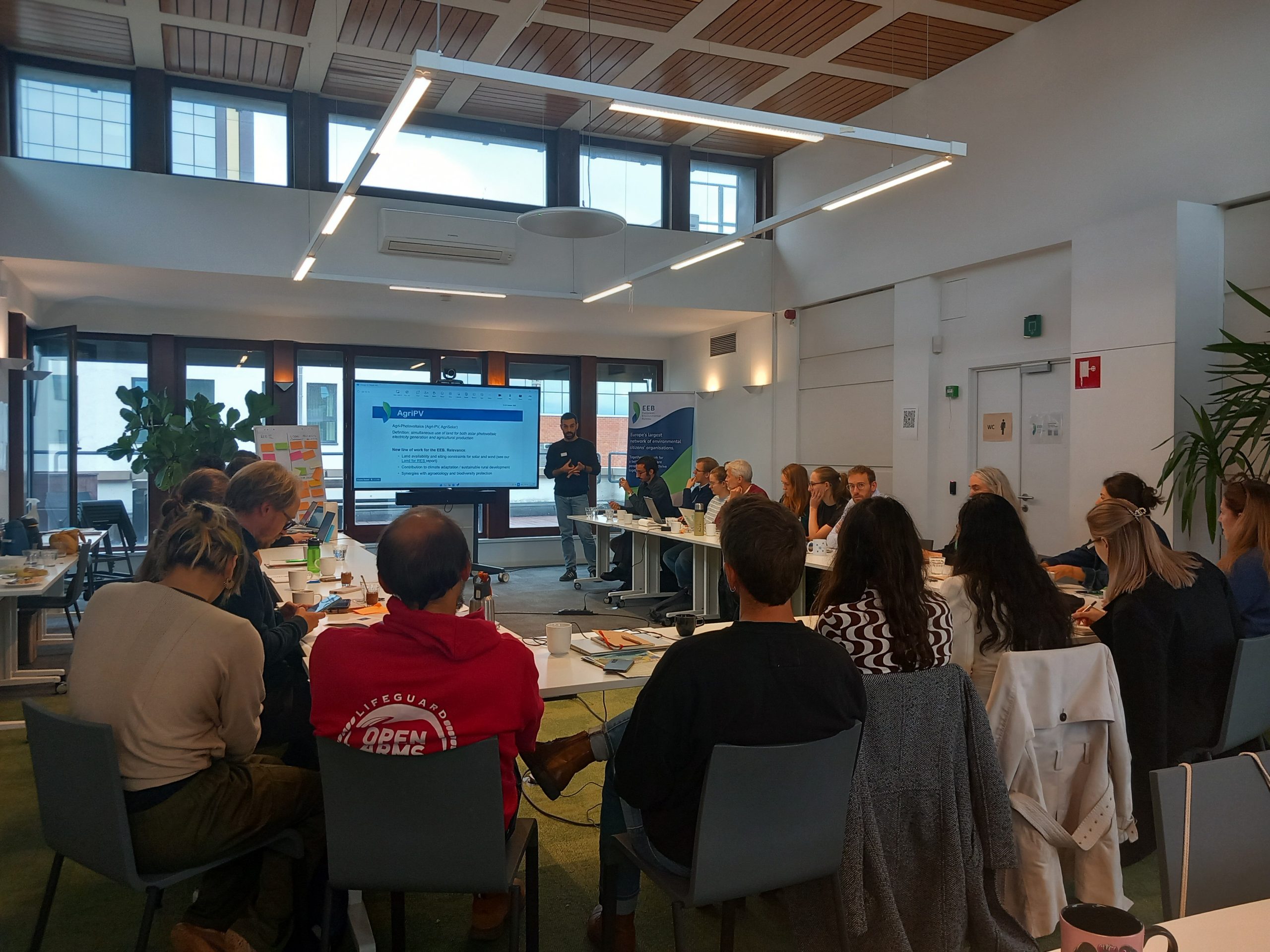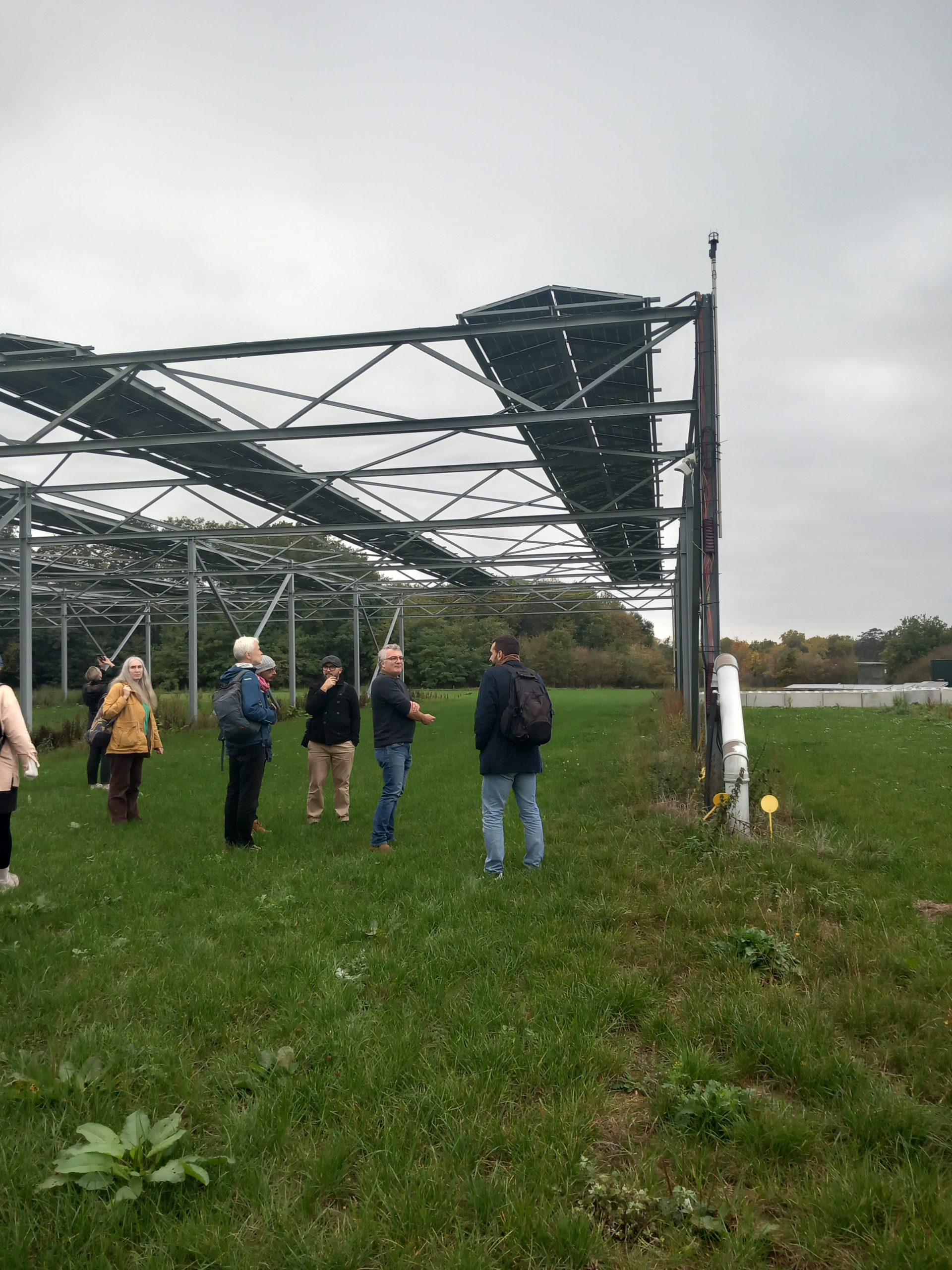The Energy and Climate Working Group was held from 14th to 16th October, 2025, at the EEB premises in Brussels. It started with the event “New Framework for Public Participation in Renewables”, hosted by MEP Paulo Do Nascimento Cabral at the European Parliament. During the event, it was explored how the implementation of the revised Renewable Energy Directive (RED) can put people at the heart of the EU’s clean and secure energy transition. The event also marked the launch of a new paper from the European Environmental Bureau (EEB), showing how citizens can engage in renewable energy deployment at every stage, from early mapping to project proposals.
On Day 1, “EEB Guidance for public involvement in renewable energy projects – your right to be heard” (2025) was presented, followed by the presentation of “RENewland” results – Renewable Acceleration Areas in Bulgaria, Hungary and Romania (2025). Political reactions & Panel followed, facilitated by Luke Haywood, Head of Climate and Energy, European Environmental Bureau, with participation of MEPs, Policy Officer at European Commission’s DG ENER and other relevant stakeholders.
On Day 2, the Renewables parallel session was organized: RED implementation & new work on the Environmental Crime Directive. As EU countries implement the Renewable Energy Directive (RED), many gaps need to be filled to ensure Europe’s shift to solar and wind is nature-positive and people-centred. In this informal session, participants discussed the future of joint work and advocacy priorities, including: EEB members’ plans for renewables advocacy at the national level in 2026; How to use and disseminate the EEB’s guidance on public participation; The rising issue of AgriPV: how to get it right; and how can we mobilise on national plans defining Renewables Acceleration Areas? Constitution of an EEB members’ task force on renewable energy and Green Corruption and the Environmental Crime Directive.
In another parallel session, the discussion was about “Nuclear: Coordinating to counter the bluff”. Nuclear energy is in the news again for all the wrong reasons: Lobbies holding the EU’s climate targets hostage to advantages for their industry, and to clear indication that EU citizens’ money is to be used to fund an industry that is too late and too expensive. What can we do together to make sure we avoid the nuclear storytelling from undermining climate action?
Another topic that was raised dealt with “The future of carbon pricing for heating and transport and the Social Climate Fund: Where are we?” Carbon pricing in heating and transport is one of the most important EU climate policies, including a hard cap on total emissions from transport and heating. But now some politicians want to loosen the rules. Over 16 EU states have asked for weakening the rules for carbon pricing, risking more emissions. The EU Commission should react before the end of the year. Where are we? In parallel, a few months away from the start of payments to EU countries out of the Social Climate Fund, the new EU Budget, the MFF, might change the rules. What risks are there in the MFF process? 3) Where do we stand with EU countries’ National Social Climate Plans?
A separate session was about “Our land, our energy: the case of AgriSolar”. In this session, participants discussed together one of the fastest-growing renewable energy types: agrisolar (a.k.a. AgriPV, or agrivoltaics) and its relevance in light of the foreseeable land use constraints for a nature-inclusive transition to renewables. The participants were stimulated to share their views and experiences on the opportunities and potential risks for AgriPV, and jointly define criteria to consider in the EEB’s upcoming work on renewables in rural areas. In addition, participants discussed the latest evidence regarding AgriPV and its potential, and analyzed potential trade-offs and advocacy opportunities at the EU and national level to ensure that solar expansion goes hand in hand with biodiversity protection and agroecology!
The field trip was organized to the “Belgian AgriSolar project”, BIERBEEK (Flanders). Participants visited an agrisolar project combined with the farming of various crops in the province of Leuven. This was the chance to visit the farm and talk to the farmer and experts from the University of Leuven.
Day 3 was dedicated to European Youth in Action and Training for NGOs, for EEB members and partner organisations working with youth or seeking to reach young audiences on climate and energy issues. This part of the Working Group was open to climate and energy policy officers, as well as communication officers and educators, who are working with youth or who intend to do so.


